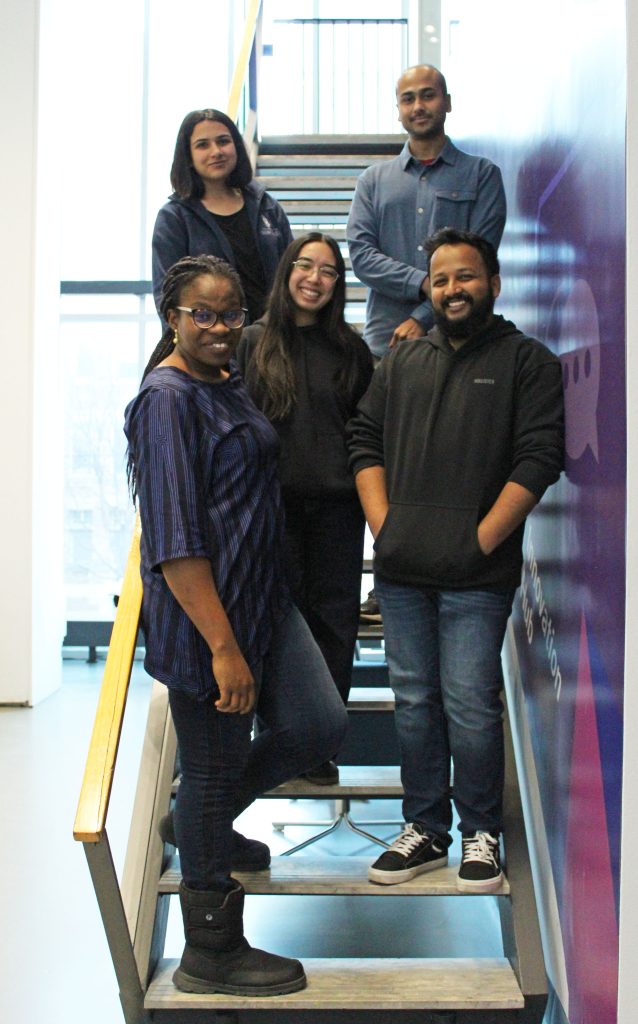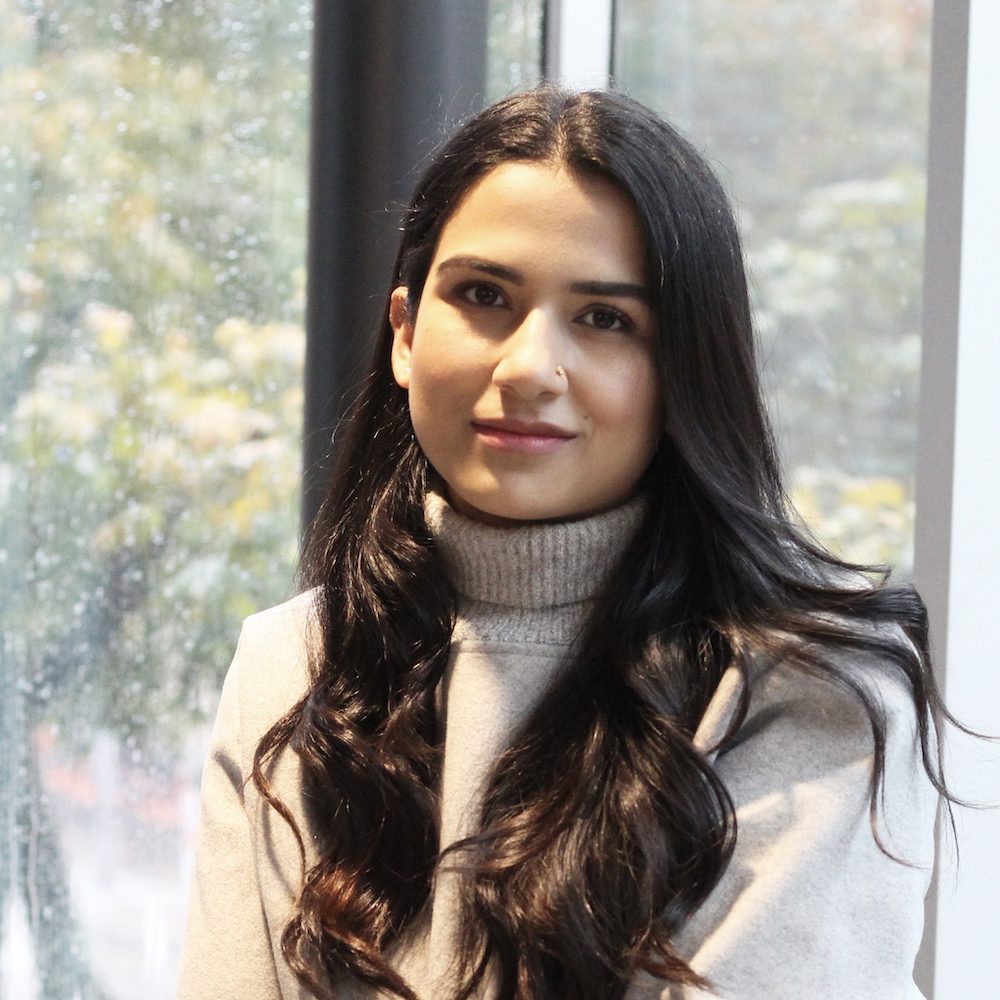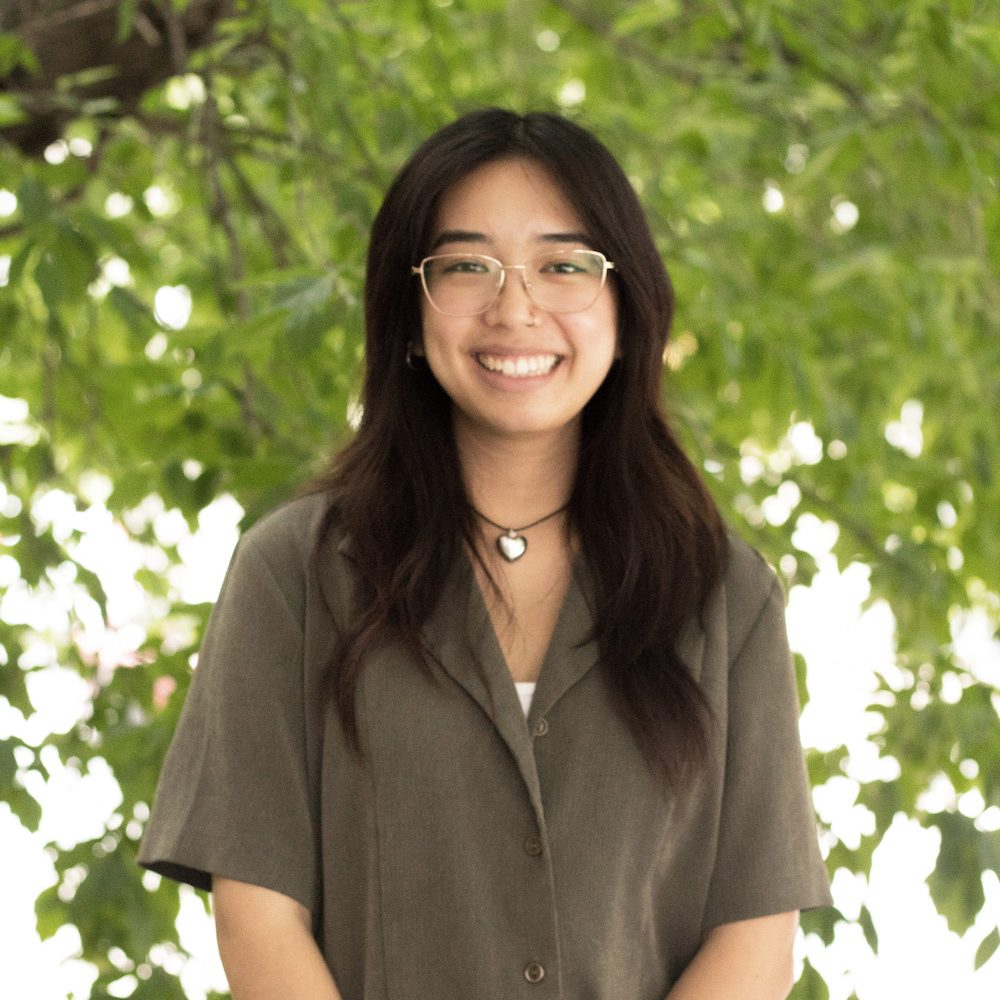This past year, an Innovation Hub Design Research team worked on a project focused on the experiences of students who are also parents. In this blog, team members reflect on the importance of empathy in listening deeply to student parent stories and understanding their needs. The team shares some of their reflections from the work, what they learned, and their hopes for how the university can continue to become family friendly.
Written by the Innovation Hub’s Experiences of Students Who Are Also Parents Design Research Team
In partnership with U of T’s Family Care Office, our team aimed to explore the needs and perspectives of students who are also parents. We focused on gaining insights into student parents’ concerns as they navigate their multiple roles and responsibilities along with their studies. While delving into these insights, our team also learned about how we can be more thoughtful and compassionate as researchers and teammates.
Broadening Our Knowledge Through Empathy
Employing the Innovation Hub’s methods in empathy-based qualitative research and design thinking helped us unpack student parents’ experiences, including both their wins and challenges. The project was deeply personal to work on because some of our team members are student parents themselves.
Through interviews, feedback sessions, and co-creation sessions, we saw the benefit of peer-to-peer research; being directly involved with our participants helped us build empathy for how student parents feel and the experiences they go through. Our direct involvement also enabled us to think deeply about how the university can best support student parents. Engaging with individuals with lived experiences as both students and parents helped us to strengthen our empathy and integrity, shaping us to be better researchers and individuals.
One of the key things we learned in the process was how to be sensitive when conducting interviews and feedback sessions and to take an open-minded approach. Seeing the intersectional identities of students who responded to our calls for participation expanded our ideas of what a student parent looks like such as single parents and students expecting a child.
When we directly engaged with our participants, we spoke to them with curiosity and respect, expressing sincere interest in their experiences while still being mindful of their vulnerability. As a result, we found students were incredibly honest about their experiences, both good and bad. Our intellectual understanding of who we were designing for deepened, which challenged us to think more deeply about designing more equitable programming and resources for student parents who often feel unseen.
Curiosity Builds Understanding
After our interviews with students, our team discussed the data. When considering student responses, we asked ourselves questions like why did students mention this…? or what led students to think like this? Our curiosity about the data helped us to gain a deeper understanding of the students’ underlying feelings and reactions and, ultimately, gather more powerful insights for our final report.
Curiosity also allowed us to evaluate our own biases about the university and student parents, which pushed us to think and re-think. As we listened to a diverse range of stories, we discovered new perspectives that inspired us to reflect on our own positionalities.
One key learning moment took place during the second phase of our project: co-creation sessions. During these sessions, our team presented initial findings back to participants to see how they resonated. Some student parents felt the initial data looked only at their identities as students and parents, but many reminded us that there are many more aspects to who they are: for example, some students spoke about how being an international student impacted their experiences and expressed hope to engage in opportunities to connect with those from both similar and different cultures.
We realized that our final report needed to broaden our discussion of student parents to reflect the rich intersectional aspects of their identities. Throughout the design research process, we tried to remain curious to continue our learning and avoid making assumptions.
Building a Mutual Support System
While building our research skills and applying them to a real issue at the university, we also built other skills, such as collaboration, and began to understand the importance of team cohesion. Each of us enjoyed working on a team of colleagues who were also curious, hardworking, willing to learn, and determined to understand the experiences of student parents on campus. Our common vision and understanding of the project helped our team support each other at difficult moments.
There were many instances when, as a team, we felt emotional hearing about the different experiences of student parents. In some instances, these reactions were heightened by some of our team members’ own experiences as student parents. During these moments, we supported each other by listening to concerns and acknowledging our vulnerabilities. We built resilience together as we aimed to foster a safe and inclusive team environment throughout the project.
Establishing this ongoing support system strengthened our sense of empathy and compassion even further. As a team, we were able to come together and develop more impactful insights to honour student parent experiences by supporting each other through challenges.
Empathy in Our Futures
This project has been an enriching opportunity for each of us personally, as it helped us practice design thinking and qualitative research methodologies. We learned to use empathy to expand our understanding, ask thoughtful questions, and lean on each other during difficult moments. The skills and values we’ve learned are not only applicable within the Innovation Hub space but will also support our future work in other organizations.
Empathy is so important not just in research, but in our daily lives. We may often overlook others’ experiences by thinking that some details might not be important. Then we consider: If I were in their place, what would I do? How would I feel? If we take time to listen to others’ perspectives, we build our knowledge and values.
As a team, we’re so proud of our work this year. We invite readers to enjoy our final report of insights.









0 comments on “Team Reflection: Empathy and Understanding with Students Who Are Also Parents ”